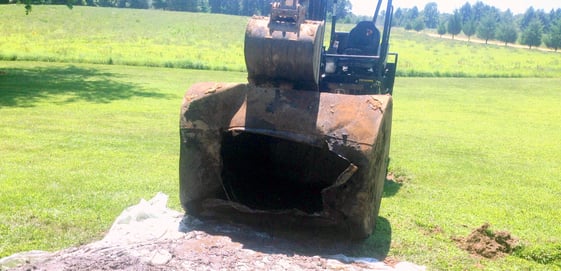It always sounds good an, inherited property. You can reap the benefits by keeping the property as your home or selling the property to cash out. What doesn’t sound good is if this inherited property has an underground oil tank and to top that, the oil tank leaked. When you inherit a property, you may be inheriting years of hassles, aggravation lawsuits and a financial abyss. How can you get around this? If you have already accepted the inheritance than you just inherited the problem and you should seek an environmental consultant and an environmental attorney. The laws state that whoever owns the property owns the problem.
What should you do before inheriting the property?
You need to understand that you are not required to accept the inheritance. You have a choice to either disclaim it or renounce it. Even if you are bequeathed multiple separate items, such as cash and jewelry, you can accept and not the other. With a property, you can’t take only a part of piece of property and reject the remainder. It is very important that you assess the property for environmental issues and discuss with your attorney your options when dealing with an inherited property. It happened recently in Califormia, a large property was inherited and found contaminated, to read the full story click here.
Hire an Attorney and Environmental Consultant.
When inheriting a property, residential or commercial, you should consult with an attorney. The attorney should be in environmental law and explain that Due Diligence is necessary to assess the property prior to acquisition. If there is any chance that your inherited property may be polluted, or there is an underground oil tank, you need to hire an environmental consultant. If there is any chance that there was or may still be an oil tank on the property a tank scan should be performed. A tank scan consists of taking measures to properly scan the property for an oil tank. The property should be scanned with a Ground Penetrating Radar system. This system uses a series of radar wave pulses that are directed below ground. When a solid object is encountered such as a metal tank, the waves are reflected back to the surface with a distinct signature. GPR tends to be more reliable , than a metal detector, as metal detectors are not discriminating and will pick up naturally occurring metal in the ground, metal from buried pipes, metal in the house, fences ect. The best approach is GPR with a metal detector verification. If this property is a commercial property you should consider a Phase I, for more information on Phase I click here.
Did the property have an Underground Oil Tank?
Find out first if there was ever an oil tank located at the property. If the dwelling is older than 1940 or was built in 1940 to 1985, there is a possibility of an underground oil tank. Older homes in regards to heat sources started out with wood or coal then moved to oil heating. Also, 9 times out of 10 if there is an above ground oil tank there probably was an underground oil tank. You may check with the borough to find out if a permit was provided to take the underground oil tank out of the ground. But, that permit does not answer the question if the oil tank leaked. The only answer the permit allows is that there was an underground oil tank and that tank was taken out of the ground. The borough does not test the soil for any leak from the tank, not do they require it. Tank removal is a construction activity, tank leaking is environmental and is handled on a state level, not on a local level.

If you do find out that there was an underground oil tank and that said tank was taken from the ground, that environmental company may have taken soil samples to make sure there was no leak. That environmental company would hopefully, have given the property owner a report on the soil samples and if the tank leaked or did not leak.
If you have no records of any soil samples or soil testing that it is advised to get soil samples done. First you would check the soil for any contamination. In the New Jersey there are regulations of how much contamination can be in located in the soil. If there is contamination, there may be a need to test the groundwater as well.
Based on testing and findings, and advisement from your attorney, it is your choice to accept the inherited property, but remember, there is always a price when dealing with any type of environmental remediation.
